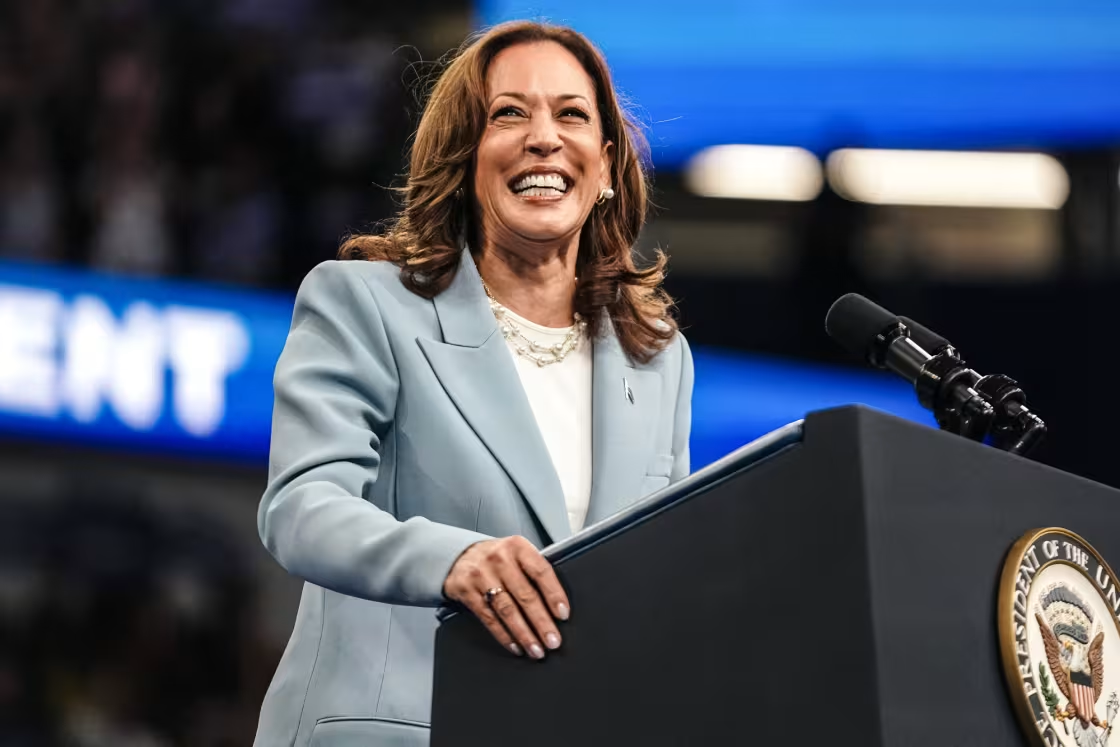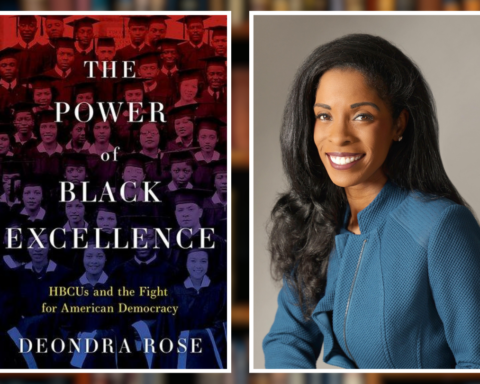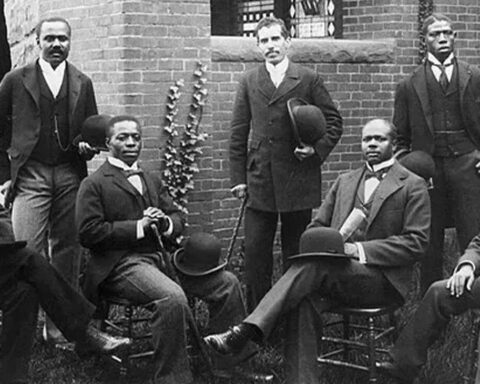The election could be decided in Georgia’s fastest-growing and most ethnically diverse county.
In Gwinnett County, a part of metro Atlanta where 58% of voters backed Joe Biden in 2020 compared with the 40% who voted for Donald Trump, both parties are again locked in a race centered on the economy. Vice President Kamala Harris’ economic pitch has heavily emphasized small-business owners, and those in Gwinnett County — one of the “Decider” counties NBC News is tracking — acknowledge they could use more support.
So far, many like what Harris is offering, though some remain undecided just over a week before Election Day. Their choices could be pivotal with Georgia’s 16 electoral votes up for grabs, the two campaigns in a virtual dead heat in recent polling and important local issues also shaping the race.
Roberto Correa, who owns Beto’s Tacos in Suwanee, said Harris’ proposal to allow up to $50,000 in tax deductions for startup expenses would “be great for a lot of people like me.”
Correa, who was born in Mexico, opened the first Beto’s in 2019 and expanded during the pandemic. He now operates four locations in the Atlanta area. Higher costs for produce like avocados have dented his margins, and sales are down about 20% this year, he said, which makes it harder to access credit.
“We need help so we can have more money and we can buy in bulk and [gain] more power” to compete with bigger franchises, Correa said. But so far, he still hasn’t decided which presidential candidate to back.
While both campaigns have blitzed Georgia, Harris will need to run up the tally in and around Atlanta, the heavily Democratic state capital — whose metro area covers 29 counties — to blunt Trump’s rural appeal. She commands 75% support in metro Atlanta, compared with Trump’s 22%, while the two were neck and neck at 49% statewide in a recent Marist College poll of likely voters, with a roughly 4% margin of error.
“If you have a strong, robust economic development plan that supports small businesses, you have a real opportunity to get more than just the average votes,” said Fred Hicks, a Georgia-based political strategist who worked on Democratic Sen. Raphael Warnock’s narrow 2021 win. That could create “the kind of cushion that she wants going into Election Day.”
Gwinnett County could offer a test of both campaigns’ appeals to voters of color and immigrants, especially on issues that matter to business owners.
The county is exceptionally diverse, with no single ethnic group making up more than a third of residents, according to 2020 census data. It’s also a cauldron of commercial activity. Four Atlanta-area counties were among the top 10 nationwide for new business growth from 2019 to 2023, with Gwinnett at No. 7, an analysis of federal data by the Center for American Progress, a left-leaning think tank, found in March.
“When you have a substantially higher percentage of an immigrant population, you do have a lot of business creation activity,” said Jerry Parrish, chief economist at the Metro Atlanta Chamber, an area business group. “Folks find a place to live, and they find people like them. They’ve managed to create a lot of jobs and a lot of opportunity up there.”
Trump has been working to convince his supporters that many immigrants are an economic drag and those here without authorization should be detained in camps and deported by the millions. At a rally last week in Duluth, a suburb in Gwinnett, he blamed Harris and Biden for the killing of Laken Riley, a 22-year-old nursing student, on the University of Georgia campus. A 26-year-old Venezuelan migrant who had entered the U.S. illegally was indicted on multiple charges in connection with the crime.
“She resettled these people into your communities all over America, and they’re the roughest people,” Trump told the crowd of Harris.
Correa said he tries to ignore Trump’s rhetoric about immigrants, which has ranged from lies about Haitians’ eating pets to language used by white supremacists, such as remarks describing migrants as “animals” who have “invaded” or “infected” communities, are “poisoning the blood of our country” or possess “bad genes.” The Trump campaign has said those comments were directed only at violent criminals or those who entered the U.S. illegally and rely on social services.
“This country was built [by] immigrants,” said Correa, adding that at least half of his employees are foreign-born. “There’s a lot of people that work here from everywhere around the world. I just keep it moving forward and focus on my business, make sure I do right by people.”
Black men are also key to Gwinnett’s diverse business community, and the Harris campaign has been working to counter Trump’s inroads with that demographic. This month she rolled out proposals including 1 million forgivable $20,000 loans to Black entrepreneurs and changing tax laws to provide incentives for employee ownership and profit-sharing plans.
Ron Tyler Jr., who owns the Duluth-based entertainment companies Tyler Studios and Payus Productions, said those ideas could help blunt higher costs.
“Running a production company requires capital, and a loan like that could be a game changer for scaling operations, purchasing better equipment and expanding our reach,” said Tyler, who has benefited from generous Georgia tax incentives that have helped turn Atlanta into a production hotbed for the likes of Disney and Netflix.
Still, he said, “I’m keeping my options open right now” on which candidate to vote for.
“While the campaign has made strides, particularly in highlighting issues that impact Black communities, sometimes Black men can feel overlooked in the broader conversation,” he said. “I would love to see more policies that focus on bridging those gaps and more engagement directly with Black men.”
A campaign spokesperson said Harris “has focused on issues prioritized by Black voters,” citing recent interviews with Charlamagne Tha God, journalist Roland Martin and The Shade Room. She also kicked off an “Economic Opportunity Tour” in Atlanta this summer, highlighting the administration’s economic accomplishments for Black communities.
Sharon Catter, who owns an interior design business in Suwanee, said Trump’s stance on abortion helped lock in her vote for Harris, though she approves of her economic plans too. Catter mentioned two high-profile deaths of pregnant women in Georgia following the state’s six-week abortion ban and said a family member nearly died from pre-eclampsia, a pregnancy complication, this summer.
“I wouldn’t vote for Trump if you paid me,” she said. “I have baby granddaughters. I want them to have rights.”
Catter also worries about her business debt since the pandemic, including a $200,000 federal disaster loan, and she said Harris’ outreach to small businesses and her proposed $50,000 startup tax deduction “speaks to me.”
“Gwinnett County has grown so much now, and now I have competition left, right and center,” said Catter, who added that she hasn’t felt financially comfortable hiring full-time staff members in over a decade.
Many of Atlanta’s name-brand employers are headquartered in Gwinnett, including Waffle House, CarMax and MassMutual. Other big companies, such as Airbnb, Microsoft and Target, have expanded in the area recently, which some community leaders say is contributing to soaring rents and snarled highways.
“Businesses are moving to where the population base is, but then the population moves out even further,” said Tad Leithead, executive director for the Gwinnett region at the Council for Quality Growth, a Georgia economic development group. “Those commute times, that sprawl, is a huge challenge.”
Some solutions are underway. The Biden-Harris administration allocated $113 million to upgrade the notoriously jammed I-285/GA-400 interchange, and Gwinnett residents will also vote on a ballot measure to add a 1% sales tax to fund public transit. But it’s anyone’s guess how those issues will intersect with national ones at the ballot box, Leithead said.
“There’s an old expression that all politics are local,” he said. “Your vote for your local county commissioner or mayor can be a far more relevant vote in terms of the day-to-day impact on your business than a vote at the presidential level.”





